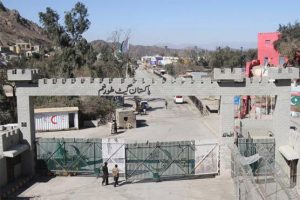Trade Between Kabul-Islamabad Heavily Dropped: Pakistani official
Trade between Pakistan and Afghanistan dropped heavily, according to the chairman of Pakistan-Afghanistan Joint Chamber of Commerce and Industry Zubair Motiwala.

Trade between Pakistan and Afghanistan dropped heavily, according to the chairman of Pakistan-Afghanistan Joint Chamber of Commerce and Industry Zubair Motiwala.
Motiwala who recently visited Kabul said the penetration of India and China has limited Pakistan’s option to retain its market share while India subsidises heavily on its exports.
“Pakistan’s trade with Afghanistan fell to $1.2 billion from $2.7bn within in the last two years and the country has been losing even the traditional markets of flour, men and women’s clothes and red meat,” he added.
According to him, Pakistan loses 50 percent market share in Kabul.
Meanwhile, a number of Afghan traders say, imports from Pakistan to Afghanistan dropped by 80 percent.
Due to commerce and transit issues between Afghanistan and Pakistan, businessmen in the country say imports through the Torkham port have been significantly fallen.
Many traders in the northern part of the country say imports from Torkham port has been increasingly decreased due to rules and problems implemented on Afghanistan’s goods by the Pakistani government.
Economic experts believe that connecting Afghanistan through Hairatan port to the Central Asian railways, and to the People’s Republic of China, as well as opening the Chabahar port of Iran and connecting the country to India, have reduced the imports of goods from the Karachi and Torkham ports.
Pakistan did not allow Indian and Afghan merchandise to travel through the Gwadar port last year, and this has led India to invest in the Chabahar port.
On the other hand, for the first time in 2016, Chinese goods entered Afghanistan via the Hairatan port, using the Central Asian railways. According to economic experts, it cost less than imports via Torkham port.
Kabul has been the natural market for Pakistani exports but that is changing as cheaper products from China and India flood the country.